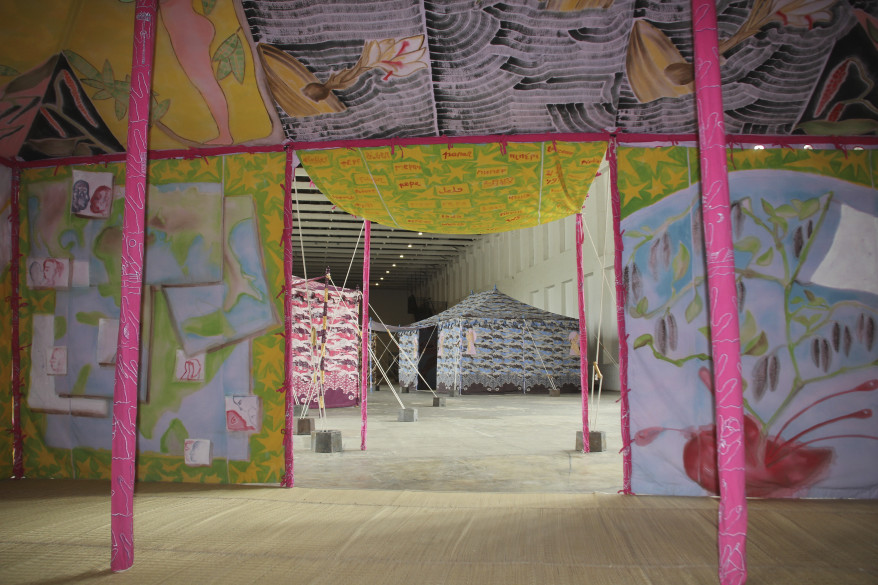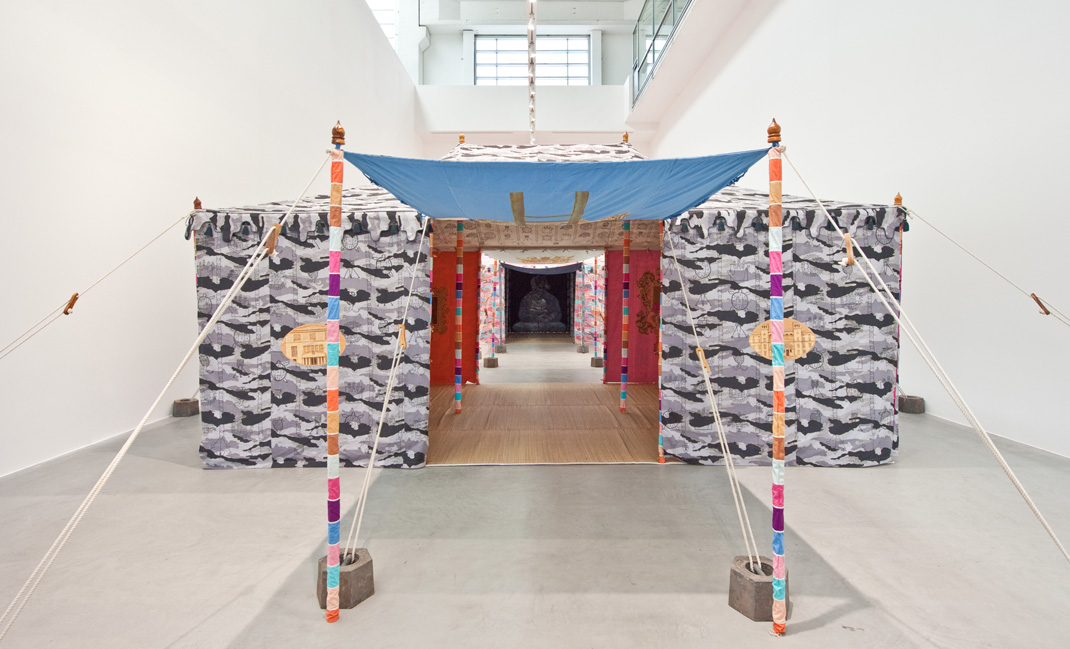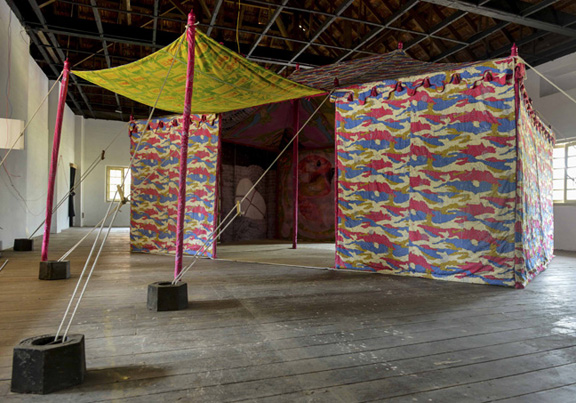March 19: His Mercy Endureth Forever
♫ Music:
Day 18 - Saturday, March 19
Title: HIS MERCY ENDURETH FOREVER
Scripture: Psalm 118: 1-18
Oh, give thanks to the Lord, for He is good!
For His mercy endures forever.
Let Israel now say,
“His mercy endures forever.”
Let the house of Aaron now say,
“His mercy endures forever.”
Let those who fear the Lord now say,
“His mercy endures forever.”
I called on the Lord in distress;
The Lord answered me and set me in a broad place.
The Lord is on my side;
I will not fear.
What can man do to me?
The Lord is my strength and song,
And He has become my salvation.
The voice of rejoicing and salvation
Is in the tents of the righteous;
The right hand of the Lord does valiantly.
The right hand of the Lord is exalted;
The right hand of the Lord does valiantly.
I shall not die, but live,
And declare the works of the Lord.
The Lord has chastened me severely,
But He has not given me over to death.
Poetry:
The Sparrows of Butyrka
by Irina Ratushinskaya
(translated by David McDuff)
Now even the snow has grown sad –
Let overwhelmed reason go,
And let’s smoke our cigarettes through the air-vent,
Let’s at least set the smoke free.
A sparrow flies up –
And looks at us with a searching eye:
‘Share your crust with me!’
And in honourable fashion you share it with him.
The sparrows – they know
Who to ask for bread.
Even though there’s a double grille on the windows –
And only a crumb can get through.
What do they care
Whether you were on trial or not?
If you’ve fed them, you’re OK.
The real trial lies ahead.
You can’t entice a sparrow –
Kindness and talents are no use.
He won’t knock
At the urban double-glazing.
To understand birds
You have to be a convict.
And if you share your bread,
It means your time is done.
HIS MERCY ENDURETH FOREVER
Looking at the Pepper Tent artwork, the beautiful bright colors on the fabric of the tents draw me to look closer at the intricate artwork. I want to walk through the installation to gaze at the decorated walls, but I’m limited to seeing only one perspective in the picture. Isn’t this another reflection of how this pandemic life has gone? The longing to see things and people in person grows as there are limitations in seeing things and people through a screen.
Recently, I supported the opening of an emergency isolation and quarantine site for people experiencing homelessness who have COVID-19. As displayed in the artwork, tents make me think of the importance of shelter, especially in the middle of a pandemic. My heart is heavy thinking about how many people lack shelter. Without cover, there is minimal protection, security, and safety. Compassion yearns to be exercised in these real-life scenarios that are happening right now to our neighbors not far from campus.
Psalm 118 pronounces, “the voice of rejoicing and salvation is in the tents of the righteous.” The psalmist testifies of the way the Lord delivered him in a time of distress, so he does not have to fear. Tents are used for celebration to praise God in victory as the Lord has done valiantly. The psalmist also reflects on how he has been chastened severely but not given death in the last two lines. There is both rejoicing and struggle in this Psalm. The repeated refrain, “His mercy endures forever,” demonstrates how God’s mercy is in the tension of the beauty and the pain. Listening to the song “His Mercy Endureth Forever” is a beautiful melody that reminds us of God’s mercy and faithfulness.
What does it look like to praise God in beauty and hardship? How do we praise him and say, “His mercy endures forever,” in both the times where we experience God’s deliverance and in other times where we feel overwhelmed? During a time when we have experienced so much collective grief, God’s mercy still endures forever, as we have made it thus far, and He continues to be with us in each situation and circumstance.
What does it look like to share our bread with those in need, like the sparrow in “The Sparrows of Butyrka?” Even if we feel isolated with the “double grille on the windows” during this season, can we still share what we have with those who come our way? As we’ve received God’s mercy that endures forever, may we also give mercy and be generous with what we’ve been given.
Prayer:
Lord, Your mercy endures forever. We thank you that You have been faithful to us and that You are present in the beauty and the struggle. Help us see Your mercy in every situation, and help us receive and give Your mercy freely to those around us.
Amen.
Grace Sangalang Ng
Graduate of Talbot School of Theology
Biola University
Independent Consultant
Procurement Specialist, City of Long Beach
Department of Health and Human Services
For more information about the artwork, music, and poetry selected for this day, we have provided resources under the “About” tab located next to the “Devotional” tab.
About the Artwork:
Pepper Tent
Encampment Installation
Francesco Clemente
2014
Tempera on cotton and mixed media
300 x 600 x 400 cm
MASS MoCA Installation
Francesco Clemente’s Encampment installation is a multi-part, 30,000-square-foot installation that occupied MASS MoCA’s largest gallery and featured a collection of six painted tents which the artist created in collaboration over the course of three years with artisans in India. For the past three decades Clemente has traveled often, dividing his work and primary residences between India and New York. Clemente’s transitory experience of changing geographies and diverse cultural climates infuses his imagery and art with a particularly rich range of references and meaning. The show’s centerpiece is a suite of six painted canvas tents which, as Clemente noted, “were generated by reflection on my own life, and my own needs; it was as if I didn’t have a home, but wanted one.” Created over the course of three years from 2012 through 2014, in collaboration with a community of artisans in Rajasthan, India, the large structures transform the gallery space into a kind of tent village. The exteriors of the large bamboo and fabric tents are richly decorated with hand-printed woodblock designs which were carved after drawings by Clemente. Inside, the tents, walls, ceilings, and entryways are awash in richly toned, jewel-like paintings. As an installation, the tents combine to create a beautiful world of color and welcoming hospitality.
https://massmoca.org/francesco-clemente-encampment/
https://artssummary.com/2015/06/11/francesco-clemente-encampment-at-mass-moca-june-13-2015-early-january-2016/
About the Artist:
Francesco Clemente (b. 1952) is an Italian contemporary artist. After an early academic background in classical languages and literature, he briefly enrolled as an architecture student at the University of Rome, Italy, in 1970. Throughout the 1970s he exhibited drawings, altered photographs, and conceptual works across Europe. Since 1973 he has frequently resided and worked in India. In 1981 Clemente moved to New York City, where he currently lives with his wife and children. Strongly influenced by the traditional art and culture of India, he has worked in various artistic media including drawing, fresco, graphics, mosaic, oils, and sculpture. He was among the principal figures in the Italian Transavanguardia movement of the 1980s, which was characterized by a rejection of formalism and conceptual art and a return to figurative art and symbolism. The artist has exhibited in New York, Milan, Rome, London, Amsterdam, Madrid, and Zürich. Clemente’s work is held in the collections of the Art Institute of Chicago, the Centre Pompidou, the Guggenheim Museum, the Metropolitan Museum of Art, the Museum of Modern Art, the Rubell Museum, the Stedelijk Museum, and the Tate Museum in London. The artist has often engaged in collaborations, both in India with local craftsmen and in New York with artists Jean-Michel Basquiat and Andy Warhol, among others.
https://www.artsy.net/artwork/francesco-clemente-pepper-tent
http://talkingaboutart.de/movable-chapels-for-contemplation-in-a-modern-age/
https://massmoca.org/event/francesco-clemente-encampment/
https://gagosian.com/artists/francesco-clemente/
About the Music:
“His Mercy Endureth Forever (Psalm 118)” from the album Testimony
Lyrics:
Oh give thanks unto the Lord
For He is Good
For He is Good
For His mercy endureth for ever and ever
Thy art my God and I will Praise you
For His mercy endureth for ever and ever [x2]
The Lord is my strength and my song
He has become my salvation, my salvation
I will praise you oh Lord
You have become my salvation, my salvation
For this is the day that the Lord hath made
I will rejoice and be glad in it
For His mercy endureth for ever and ever
Oh Give thanks unto the Lord
His mercy endureth for ever [x8]
His mercy endureth for ever
And ever and ever
watching over me.
About the Performers:
The Richard Smallwood Singers and Richard Smallwood
The Richard Smallwood Singers are a chart-topping and award-winning gospel group formed in 1977 at Howard University, Washington, DC, by Richard Smallwood. The original members of the group included Wesley Boyd, Lisa Burroughs, Carolene Evans, Dottie Jones, Rickie LaFontaine, Raymond Reeder, Jacqueline Ruffin, Darlene Simmons, and Richard Smallwood. The Richard Smallwood Singers were the first Black gospel group to go to the Soviet Union. Smallwood and his singers also toured with a theatrical musical, Sing Mahalia Sing, starring Jennifer Holiday, which segued into a guest appearance on television's Ryan's Hope for ABC. The album The Richard Smallwood Singers, the group’s debut, spent eighty-seven weeks on Billboard's gospel chart. Their next project, Psalms, received a Grammy nomination. Two years later, another Grammy nomination came for Textures, the album that contained the classic "The Center Of My Joy," co-written by Richard Smallwood with Bill and Gloria Gaither. The group continued to amass successive Grammy nominations with the following projects: Vision, Testimony, and Live at Howard University.
About the Performer/Composer/Lyricist:
Richard Smallwood (b. 1948) is an American gospel artist who formed The Richard Smallwood Singers in 1977. Smallwood graduated cum laude from Howard University with degrees in both vocal performance and piano. His recording career began in 1982 with the album The Richard Smallwood Singers. Smallwood won his first Grammy, along with a Dove Award, for his production on the Quincy Jones' gospel project Handel's Messiah: A Soulful Celebration. Smallwood's music has been recorded by artists such as Destiny's Child, Yolanda Adams, Karen Clark-Sheard, and many more. He finished his master's degree in divinity from Howard University in 2004 and was inducted into the Gospel Music Hall of Fame in 2006. Smallwood's next project was recorded live at the Hammerstein Ballroom at the Manhattan Center in New York. The concert featured guests Kim Burrell on "Journey,” Kelly Price on "Morning's Breaking," Chaka Khan on "Precious Is Your Name," as well as The Hawkins Family, Tramaine Hawkins, and the original roster of singers who comprised The Richard Smallwood Singers. Among Smallwood's most popular songs are “Total Praise,” composed in 1996 while he was experiencing sorrow in his life, and “I Love the Lord,” popularized by singer Whitney Houston in the film The Preacher's Wife (1996).
https://en.wikipedia.org/wiki/Richard_Smallwood
About the Poet:
Irina Ratushinskaya (translated by David McDuff)
Irina Ratushinskaya (1954–2017) was a Russian Soviet dissident, poet, and writer. Ratushinskaya was educated at Odessa University and graduated with a masters degree in physics in 1976. Rejecting overtures from the KGB, she taught physics and math at a primary school before being fired for criticizing the school’s anti-Semitic policies. In 1980, Ratushinskaya and her husband, Igor Gerashchenko, began to protest the Soviet Union’s human rights violations in earnest, and her poetry began appearing in dissident publications. In 1982, she was arrested on charges of “anti-Soviet agitation and propaganda” and sentenced to seven years of forced labor, of which she only served three. Ratushinskaya wrote poems on bars of soap so she could quickly wash them away if caught, and memorized the lines to write down on cigarette papers. Many of her two hundred fifty poems were smuggled out of prison this way. Her poetry expressed an appreciation for human rights, liberty, freedom, and the beauty of life. Both her memoir, Grey is the Colour of Hope, and her later poetry chronicle the hardships and horrors of prison life. Enormous international outrage and Mikhail Gorbachev’s glasnost policy led to her release in 1986. In 1987 the Russian Politburo deprived both Irina and her husband of their Soviet citizenship and they moved to the United States. Ratushinskaya served as poet-in-residence at Northwestern University from 1987 to 1989. She eventually returned to Russia in 1998 with her husband and twin sons, and there she continued to write poems and television scripts.
https://en.wikipedia.org/wiki/Irina_Ratushinskaya
https://www.poetryfoundation.org/poets/irina-ratushinskaya
About the Devotion Author:
Grace Sangalang Ng
Graduate Candidate of Talbot School of Theology
Biola University
Independent Consultant
Procurement Specialist, City of Long Beach
Department of Health and Human Services
Grace Sangalang Ng is graduating with her Ed.D. in Educational Studies from Talbot School of Theology at Biola University. Her research interests include integrating theological, psychological, and sociological aspects of honor and shame. She has published work for Christian Higher Education and has presented at the Evangelical Theological Society and the American Society for Engineering Education. Ng is currently a Procurement Specialist for the City of Long Beach Department of Health and Human Services, supporting health equity in helping communities most impacted by the pandemic. In addition, she has served as an independent consultant for The Association of Theological Schools and the American Baptist Home Mission Societies. She has earned two master’s degrees in Bible Exposition and Spiritual Formation from Talbot School of Theology at Biola University and a B.A. in English from UCLA.


